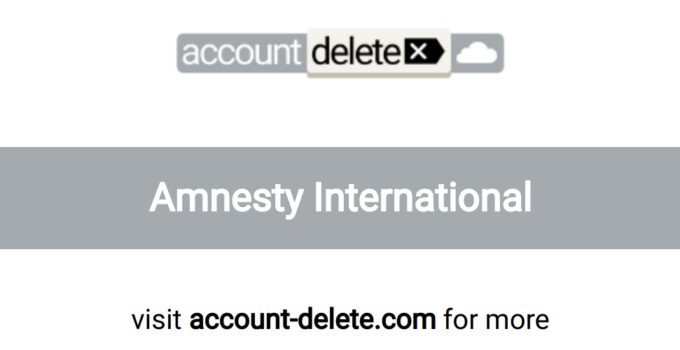Amnesty International is also known as
About Amnesty International
Amnesty International (also known as Amnesty or AI) is a non-governmental group based in the United Kingdom that advocates for human rights. According to the organization’s website, it has over ten million members and followers worldwide. The organization’s stated mission is to advocate for “a world in which everyone has access to all of the human rights enshrined in the Universal Declaration of Human Rights and other international human rights instruments.” Because of its frequent mention in the media and by world leaders, the organization has played an important part in human rights issues.
AI was established in 1961 in London by lawyer Peter Benenson. Its initial emphasis was on prisoners of conscience, but in the 1970s, under the leadership of Seán MacBride and Martin Ennals, its mandate was expanded to include miscarriages of justice and torture. It received the Nobel Peace Prize in 1977. Its secretary-general in the 1980s was Thomas Hammarberg, who was replaced in the 1990s by Pierre Sané. It was headed by Irene Khan in the 2000s.
Amnesty International raises awareness of human rights violations and advocates for compliance with international laws and standards. It works to mobilize public opinion to put weight on governments where abuse occurs.
Amnesty International is mostly made up of volunteers, but it does employ a few paid experts. Members of Amnesty International are organized into “sections” in countries where the organization has a significant presence. Sections typically coordinate basic Amnesty International activities with a large number of members, some of whom will form “groups,” and a professional staff. Each organization has a council of directors.
There were 63 sections globally in 2019. “Structures” are prospective parts. They, too, coordinate basic activities, but with a smaller group and fewer resources. People can become “international members” in nations where no structure exists. There are two additional organizational models: “international networks,” which promote particular themes or have a distinct character, and “affiliated groups,” which perform the same functions as section groups but in isolation.
The Global Assembly, which meets once a year, is the highest governing authority. The head and executive director of each Section is sent to the GA. The PrepCom governs and manages the GA procedure. (Preparatory Committee). The International Board (formerly known as the International Executive Committee [IEC]) is comprised of nine members and the International Treasurer and is headed by the International Board Chairperson (Sarah Beamish). Two people are co-opted.
The Global Assembly elects and holds the IB responsible. The International Board meets at least twice per year, and in reality, meets at least four times per year. Video conferencing is used for other board and subcommittee sessions. The International Board’s role is to make decisions on Amnesty International’s behalf, to manage the International Secretariat, including regional offices, to execute the Global Assembly’s strategy, and to ensure compliance with the organization’s statutes.
Under the guidance of the International Board, the International Secretariat (IS) is in charge of Amnesty International’s daily operations. It is led by a Secretary General and staffed by roughly 500 professional staff members. The Secretariat is responsible for several labor programs, including International Law and Organizations, Research, Campaigns, Mobilization, and Communications. Since its inception in the mid-1960s, its headquarters have been in London.
Amnesty International’s guiding principle is to concentrate on prisoners of conscience or people who have been imprisoned or stopped from expressing themselves through violence. Along with opposing repression of free expression, Amnesty International’s founding principles included non-intervention on political issues, a strong commitment to gathering information about different cases and promoting human rights.
One important problem in the principles concerns those who may advocate or tacitly support the use of violence in anti-repression struggles. AI does not decide whether or not violence is warranted. However, AI does not oppose the use of political violence in and of itself because the Universal Declaration of Human Rights foresees circumstances in which people may “be compelled to resort, as a last resort, to rebellion against tyranny and oppression.” If a prisoner is serving a sentence given after a fair trial for violent activities, AI will not request that the prisoner be released.
AI does not support or condemn the use of violence by political opposition groups in and of itself, just as AI does not support or condemn a government strategy of using military force to combat armed opposition movements. However, AI advocates for minimum humane standards that should be followed by both governments and armed opposition organizations. AI condemns abuses committed by opposition groups that torture or murder their captives, take hostages, or conduct intentional and arbitrary killings.
Amnesty International believes that capital punishment is the ultimate, irreversible violation of human rights and opposes it in all instances, regardless of the crime committed, the circumstances surrounding the individual, or the method of execution.
Amnesty International CANCEL GUIDES
Get together the following account information:
- First Name
- Last Name
- Phone Number
- Email Address
- Username
- Password
- Billing Address
- City
- State/Province/Region
- ZIP/Postal Code
- Country
- Reason for Cancellation
- Last 4 Digits of Card
- Date of Last Charge
- Amount of Last Charge
E-Mail
Follow these steps:
- Compose an email and include your account information
- Tell the rep you need to cancel within the email
- Request that the agent emails you confirmation or gives you a verbal confirmation code in reply
- Send your email to [email protected]
- Keep the proof given to you for your records
MORE ABOUT Amnesty International
| Address |
|---|
| Address 1 | Member Services Amnesty International USA |
| Address 2 | 5 Penn Plaza 16th Floor |
| City | New York |
| State/Province/Region | NY |
| Zip/Postal Code | 10001 |
| Country | United States |
| Contact Information |
|---|
| Phone 1 | 1-212-633-4254 |
| Email 1 | [email protected] |
| Twitter Url | https://twitter.com/amnestyusa |
| Facebook Url | https://www.facebook.com/amnestyusa |
| Main Site Url | https://www.amnestyusa.org |
| Help Site Url | https://www.amnestyusa.org/support-center |
| Policies |
|---|
| Terms Of Service Url | https://www.amnestyusa.org/terms-conditions |
| Privacy Policy Url | https://www.amnestyusa.org/privacy-policy |
Known Amnesty International charges
- AMNESTY INTERNATIONAL
- CHECKCARD AMNESTY INTERNATIONAL
- CHKCARD AMNESTY INTERNATIONAL
- CHKCARDAMNESTY INTERNATIONAL
- Misc. Debit AMNESTY INTERNATIONAL
- PENDING AMNESTY INTERNATIONAL
- POS Debit AMNESTY INTERNATIONAL
- POS PUR AMNESTY INTERNATIONAL
- POS PURCH AMNESTY INTERNATIONAL
- POS PURCHASE AMNESTY INTERNATIONAL
- POS REFUND AMNESTY INTERNATIONAL
- PRE-AUTH AMNESTY INTERNATIONAL
- Visa Check Card AMNESTY INTERNATIONAL MC




